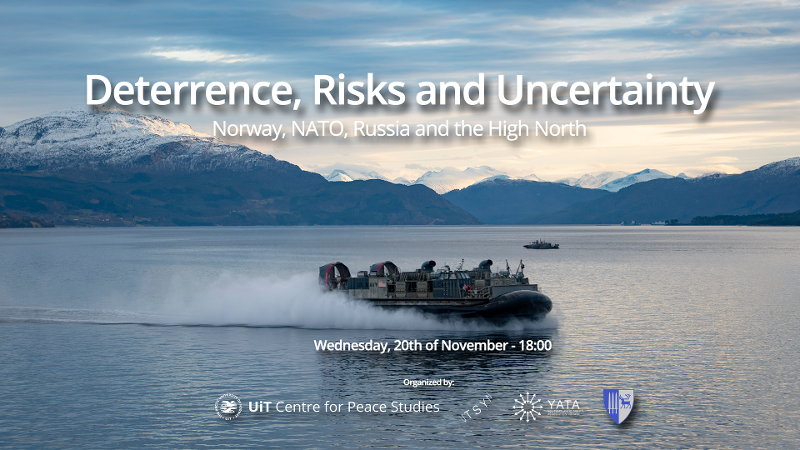Nearly twenty years after the end of the Cold War, relations between Russia and the West seem to have reached a new all-time low.
Once again, NATO and Russian forces are exercising and operating in close proximity to one another and both sides are engaging in an increasing military build-up and show of force. Among several countries, these developments in NATO-Russia relations over the last couple of years have prompted concerns of a possible surprise attack or that a military incident – in particular in the Baltic or Black Sea – could lead to an unintended escalation between Russia and the West. This risk has in a number of European states led to an increasing push for a more balanced approach vis-à-vis Russia. An approach that combines credible deterrence with measures of risk reduction and détente.
In a recent report by the OSCE Network of Think Tanks and Academic Institutions, experts from the U.S., Russia, Germany and other European countries present a number of proposals for “Reducing the Risks of Conventional Deterrence in Europe: Arms Control in the NATO-Russia Contact Zones”. What are possible implications of this report for Norwegian-Russian defence relations? How do the current tensions in NATO-Russia relations affect the security situation in the High North and how can Norwegian-Russian experiences from the Cold War contribute to peace and stability in Europe, today?
Join us for an interesting panel debate and discussion co-organized by the Centre for Peace Studies, UTSYN - Forum for Utenriks og Sikkerhet, YATA Norge and Tromsø Militære Samfunn. The event is free of charge.
Panelists:
Hans-Joachim Schmidt is an Associate Fellow and former Senior Researcher at the Peace Research Institute Frankfurt (PRIF) where he researches on issues related to conventional arms control and military confidence building measures in Europe and on the Korean peninsula. He is a Co-Author of the report “Reducing the Risks of Conventional Deterrence in Europe: Arms Control in the NATO-Russia Contact Zones”.
Philip Remler is a nonresident scholar at the Carnegie Endowment for International Peace. Prior to joining Carnegie, he served at the U.S. Department of State and the Organization for Security and Cooperation in Europe (OSCE). His overseas posts included Ankara, Baku, Chişinău, Grozny, Iraqi Kurdistan, Moscow, and Tbilisi. His career included an extended involvement with the conflicts in the former Soviet Union and in participating in OSCE- and UN-led efforts to mediate them, including the Abkhazia, Chechnya, Nagornyy Karabakh, South Ossetia, and Transdniestria conflicts.
Torgeir E. Fjærtoft is a Senior Advisor at the Ministry of Foreign Affairs in Oslo and current Visiting Research Fellow at the Institute for Contemporary History, Department of Cold War Studies in Berlin were he focuses on the Euro-Missile Crisis of 1983 and the risks of unintended escalation through mutual deterrence measures. His previous diplomatic postings include the Norwegian Embassy in Riyadh, the Norwegian Mission to the UN in New York as well as the Norwegian Embassy in Bonn and he also has extensive professional experience in Norwegian-EU/EEA relations.
Benjamin Schaller is a PhD candidate and research fellow at the Centre for Peace Studies at the Arctic University of Norway in Tromsø where he researches on the role of trust and distrust in the defence and security relations between Norway, Sweden, Canada and Russia. He previously worked at the German Federal Foreign Office where he had responsibility for policies in the area of arms control and military security, in connection with the German chairmanship of the OSCE in 2016. He is a Co-Author of the report “Reducing the Risks of Conventional Deterrence in Europe: Arms Control in the NATO-Russia Contact Zones”.
